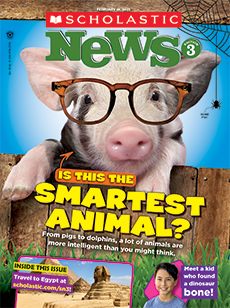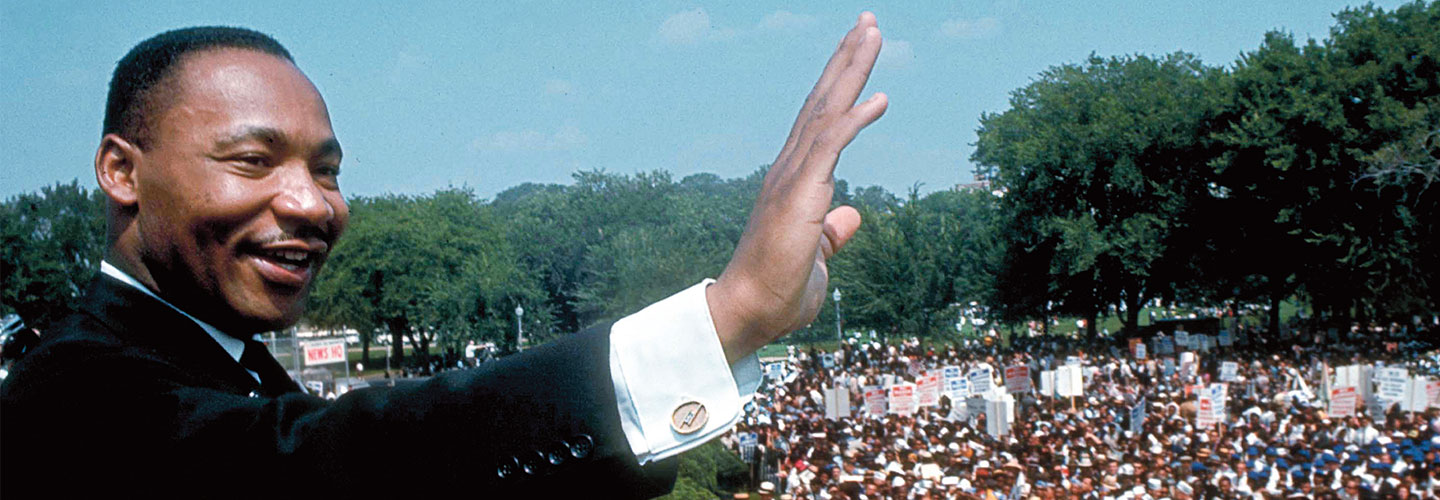Phil Skinner/AP Images for Scholastic Inc.
Yolanda Renee King
Yolanda Renee King is busy. The fifth-grader studies hard, plays soccer, and takes violin lessons. She also speaks out about issues that are important to her—just as her grandfather did. Yolanda’s grandfather was Dr. Martin Luther King Jr.
Dr. King was an important American leader. In the 1950s and 1960s, he led an effort to gain equal rights for African Americans. Back then, unjust laws segregated Black people from White people in many places. Black people couldn’t go to the same schools, theaters, hospitals, or other places as White people. Some states had laws that made it hard for Black people to vote.
Dr. King led peaceful protests and gave inspiring speeches to demand equality. His leadership helped bring about great change.
Dr. King was killed in 1968, long before Yolanda was born. Scholastic News spoke to Yolanda at her home in Georgia about her grandfather and her work for social change.
Yolanda Renee King is busy. She studies hard and plays soccer. She also speaks out about issues. In that way, she’s a lot like her grandfather. He was Dr. Martin Luther King Jr.
Dr. King was an important leader. He fought for equality for African Americans in the 1950s and 1960s. Back then, unjust laws segregated Black people from White people in many places. Black people couldn’t go to the same schools, theaters, or other places as White people. Some states made it hard for Black people to vote.
Dr. King led protests and gave speeches. He helped bring about change.
Dr. King was killed in 1968, long before Yolanda was born. Scholastic News spoke to Yolanda about her grandfather and her work for social change.

